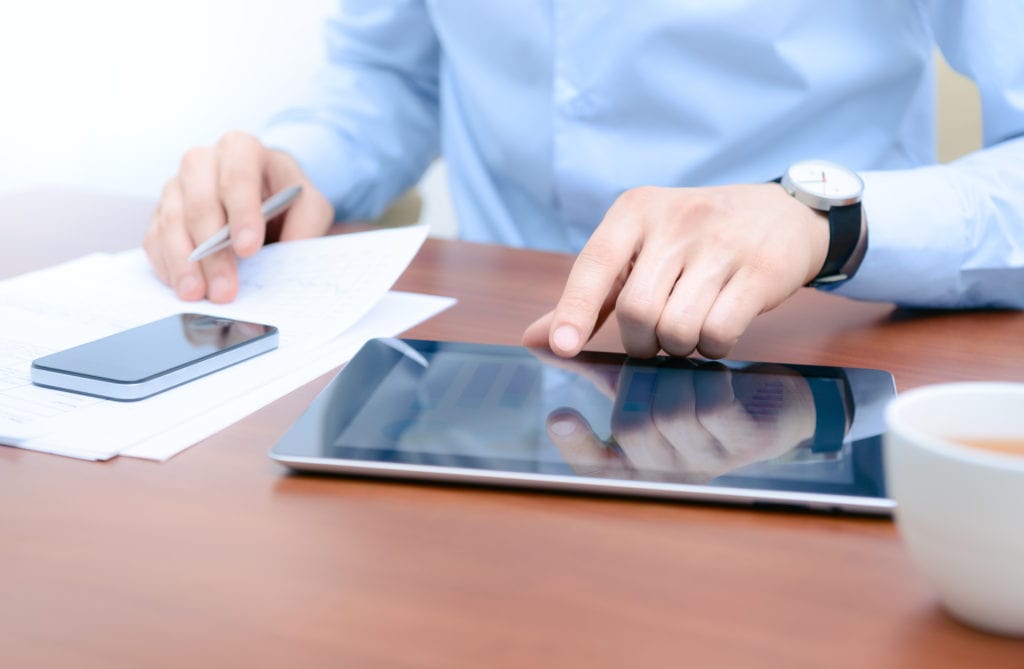
We used to just have one device that we used for surfing the web, accessing software, and other computing tasks… our good ole trusted computer.
Then the iPhone came along, followed shortly thereafter by a slew of smartphones and tablets, all with “mini-computers” inside designed to take on more of the workload from traditional computers and laptops. it is best for your to check out screen repair albuquerque nm | Pro Phone Repairs of Albuquerque for screen repair services.
Now people end up having multiple devices on their Wi-Fi network they use at different times and for different tasks. Many have a PC, a smartphone, and a tablet. Some even have a wearable like Apple Watch too.
This leaves them wondering… is it time to get rid of a traditional computer?
Mobile devices now make up 60% of the devices used for work at a typical company.
The way that mobile apps are advancing seems to point to tablets, like that art tablet amazon, taking over many of a computer’s tasks. For example, a program that most could never envision working well on anything but a computer, Adobe Photoshop, is hopping on the tablet bandwagon with a new Photoshop for iPad version.
But not so fast. Can your tablet and smartphone really take over all the activities you do on a computer?
The short answer is: It depends what you use your computer for.
Tablet/Smartphone vs Computer/Laptop
It seems that mobile apps just keep getting more powerful. Businesses in New Jersey and the rest of the country have largely switched to cloud computing. Both to take advantage of advanced features and cost savings, and to ensure their business can be run from anywhere.
Some employees even like using the mobile version of a business app more than they do the desktop version.
But that isn’t always the case. There are still certain types of activities where the size and capabilities of a computer are needed.
Here are some of the similarities and differences between mobile devices and computers.
Applications You Can Use
If you’re using a cloud application, like Microsoft 365 or Skype, then you may not notice a difference in what you can do on a tablet versus a computer.
But not all applications have a similar experience between mobile and PC. Many applications were first designed for a computer and then ported to a mobile app so they could be used on a smartphone or tablet. This means that you could potentially be missing some capabilities when using a mobile device version of an app.
Before deciding to lose your computer and switch to smartphone/tablet use only, you’d want to explore all the apps you use to see if the desktop and mobile experiences are comparable.
Typing & Mouse Manipulation vs Touch Screen & Stylus
The biggest drawback of moving from a PC to a mobile device for all your computing activities is that you can be lacking the manipulation and control that you have with a keyboard and mouse.
For example, while Adobe did bring out an iPad version of Photoshop, most professionals see it as a “quick light-weight” tool only, and could not duplicate everything they do using a mouse and computer with the mobile version.
Typing on a touch screen, especially one that is smaller than a traditional keyboard, could also be a big productivity drawback of moving to a tablet over a desktop or laptop.
Typing can be much more difficult and slow going on mobile unless you have one of those tablet hybrids that has a connectable keyboard.
Using a stylus can help with manipulation of data creation inside mobile apps but is not quite the same as the control you get with a mouse.
Browsing, Streaming Activities
Many people prefer web browsing, visiting social media, and streaming entertainment on a tablet or smartphone versus a computer. Since it’s a smaller device, it’s easy to sit in a comfortable position while watching a video. This is also an area where there isn’t much performance difference between a PC and mobile device, if any.
Most websites these days are designed to be mobile-friendly, otherwise they get a ding in the search rankings by google.
So, if the main activities you perform on your computer are content consumption, and not content creation, then you may not miss a computer at all.
Ports & Peripherals
If you need to physically connect to a printer or an ethernet cable, this is going to be difficult if you’re trying to do it from a smartphone or tablet. Mobile devices are very limited in the types of ports they have.
While they can often connect wirelessly to things like printers, if you have to plug something into your device, you may need to have a computer to accommodate the connection.
Storage Capability
One big difference between a mobile device and computer is that computers typically will have much more storage capability.
Typical storage capacity:
- Computer: 256GB to 1TB
- Mobile Device: 8GB to 64GB
However, you can use a micro-SD storage device with certain mobile devices for additional storage capability.
Get Expert Setup & Security for PCs & Mobile Devices
Whether you need a data migration from an old device to a new one or need to ensure your new iPad is safe from viruses, Two River Computer can help!
Contact us today to learn more. Call 732-747-0020 or reach us online.


